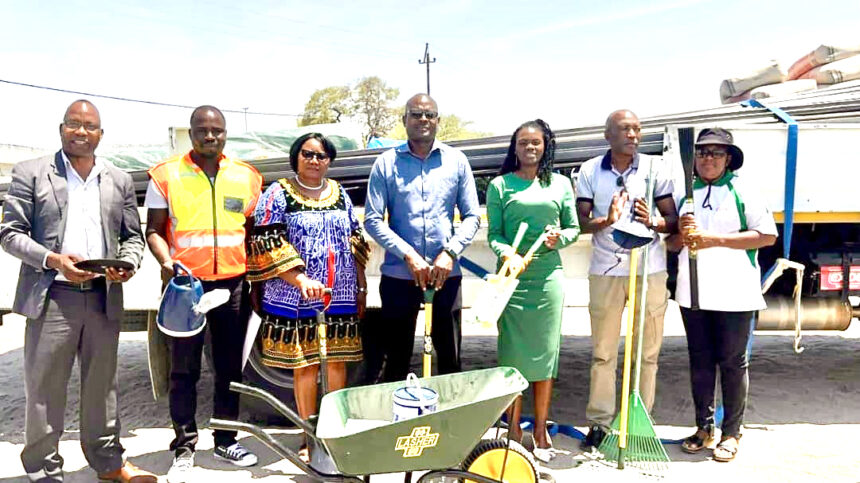Auleria Wakudumo
The University of Namibia (Unam), through the Nourishing Spaces project (NCD), handed over materials worth over N$170 000 to the Evululuko community gardening project.
The materials were handed over by the university’s representative, Ndeyapo Nickanor.
She said Unam decided to donate to the community as a way of mitigating issues related to unhealthy diets in communities following a study that was carried out by NCD.
“Urban food systems are undergoing major transformation, urban poverty is increasing, urbanisation is rising, and so are consumption patterns,” she noted.
The NCD project, which was established in 2017, was initially planned to be in existence for five years.
However, with the Covid-19 outbreak, the project experienced major setbacks.
Consequently, a study was conducted to offer insights into the life experiences of changing food systems and urban systems about diet-related issues within two low-income communities in Namibia.
“The formats of the research were through a participatory process, engaging local government officials, community food systems and community members,” Nickanor said.
Oshana governor Elia Irimali said the region is experiencing a rise in the number of individuals migrating from rural constituencies to Oshakati.
“While this influx brings diversity and potential, it also contributes to a high unemployment rate among newcomers,” he said.
He stressed that local industries have yet to expand sufficiently to absorb the growing workforce.
He encouraged community members to collaborate and share experiences, as the knowledge gained can lead to sustainable solutions.
“I urge each of you to embrace the presence of researchers in our community. By responding thoughtfully to the researcher’s questions, we can leverage their insights to improve our lives,” he added.



